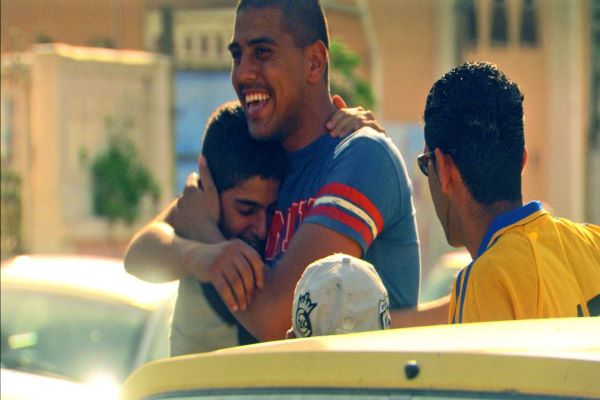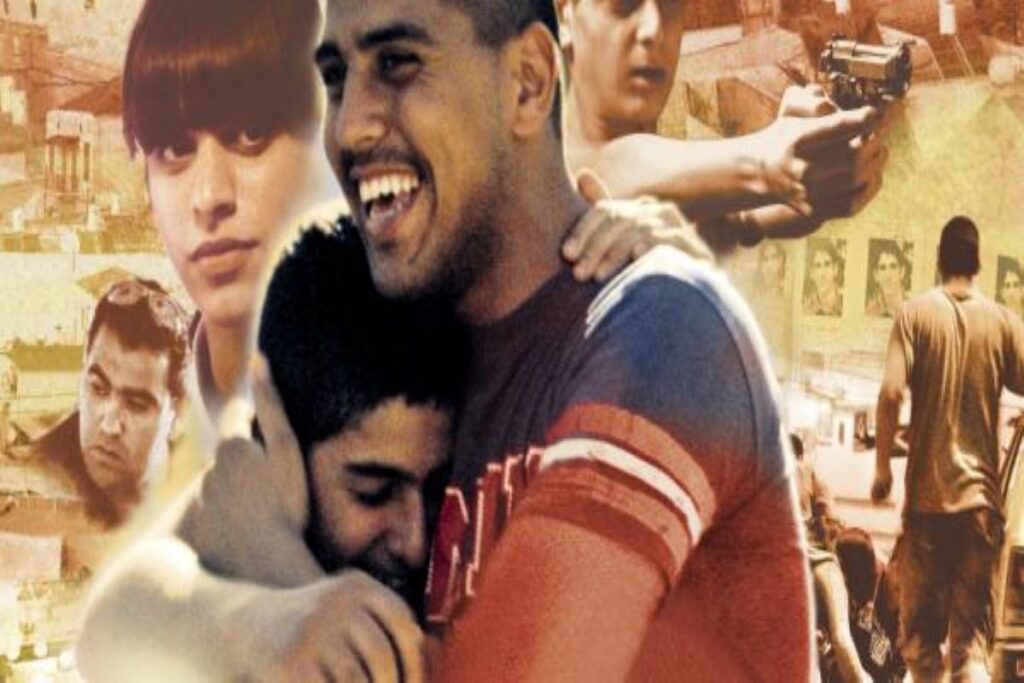It is wonderful to see an Israeli and a Palestinian filmmaker coming together and collaborating to make a feature film amidst the infamous Israeli-Palestinian conflict. The State of Israel was formed on 14th May 1948, which led to the Arab-Israeli war. When the war ended in 1949, the entire land was divided into 3 parts – The State of Israel, the West Bank, and the Gaza Strip. The West Bank and the Gaza Strip are the territories of the State of Palestine. However, since the birth of Israel, the Israeli-Palestinian conflict has always been an ongoing crisis claiming more than 30000 innocent civilian lives to date. A Palestinian-origin filmmaker, Scandar Copti, and an Israeli filmmaker, Yaron Shani, portray this infamous crisis in their first feature film Ajami. The film narrates the story of the Arab neighborhood named Ajami of Jaffa, Tel Aviv, Israel. Apart from the Palestinians and Israelis, Ajami features Christians and Bedouins. In the process of claiming and reserving their own entities and identities, ordinary civilians fight and kill each other. Amidst massacres and bloodshed, ordinary innocent lives struggle to bloom.
The story of Ajami is set in the Arab neighborhood named Ajami of Jaffa, Tel Aviv, Israel. A Palestinian-origin Israeli boy Nasri (Fouad Habash) narrates the story. The film has five interconnected storylines. In the first story, Nasri’s uncle shoots and fatally injures a member of the Abul Zen Bedouin clan in his cafe. The clan members target Nasri’s family to avenge this attack. They target Nasri’s brother Omar (Shahir Kabaha) but kill his innocent neighbor thinking of him as Omar as he already sold his car to the neighbor. Being concerned about the family’s security and safety, Nasri and his young sister are sent to Jerusalem. Omar decides to stay back with his mother and old grandfather. An affluent and respected Christian Abu Elias (Youssef Sahwani) mediates the peace process between Omar’s family and the Bedouins. The Judge settles the case for 3000 Dinars in advance and 35000 Dinars within three weeks to be compensated to the Bedouins by Omar’s family. Omar starts stealing gas chargers along with his friend Shaata to overcome this mammoth financial burden. However, he rejects his mother’s idea of fleeing Ajami.

In the 2nd story, a Palestinian teenager named Malek (Ibrahim Frege), who has been smuggled to Israel, works in Abu Elias’ restaurant where Omar works. Malek urgently needs enough money for his mother’s bone marrow transplant surgery. He befriends Omar, who is in love with Abu Elias’ daughter Hadir (Ranin Karim). Abu Elias comes to know about this Christian-Muslim affair, strongly disapproves of the affair, and fires Omar.
In the 3rd story, an older jew complains to three young Arab drug dealers about their bleating sheep that did not let him sleep last night. During the heated argument, one of the drug dealers stabs the jew to death. All of them go into hiding before the police arrive. The police officials include an officer named Dando (Eran Naim) whose brother Yoni has gone missing while serving in the Israeli Defense Force. This grieving incident has deserted the family members who are yet to cope with the terrible loss. Later in the story, Yoni’s mortal remains are recovered from Palestinian territory. Dando vows to catch and punish the murderer.
In the 4th story, Binj (Scandar Copti), an Arab cook at Abu Elias’ restaurant, is in love with a Jewish girl he plans to marry and settle down with. His close friends at the restaurant Omar and Malek strongly condemn this decision. Binj’s brother is one of the drug dealers who murdered the Jewish man. Police officials interrogate Binj and his father to track his absconding brother. Back home, he is handed over the drugs that his brother owns. After keeping a few drug bricks for himself, He disposes of most of the drug bricks but duplicates those with sugar bricks. Binj is accidentally killed by a drug overdose. Without knowing that the drug bricks are fake, Omar and Malek attempt to sell those to drug dealers. Abu Elias comes to know about their plan and fires Malek. However, he changes his mind, reinstates Malek, and offers money for his mother’s surgery on the condition of Malek going for selling without carrying the drugs, so that only Omar gets arrested. He wants to frame Omar without knowing that the drugs are fake.

In the 5th story, a few police officials including Dando carry out a sting operation against Omar and Malek. They frame them but find out the drugs are fake. When Dando points his gun toward Malek, Nasri shoots him. Malek is shot and killed by another officer. Omar runs to his car only to find out that Nasri is missing.
Filmmakers Scandar Copti and Yaron Shani vividly show through Ajami how difficult it is to live in Ajami where Arabs, Palestinians, Jews, and Christians live side by side. People are so bound by their religion that they don’t refrain from hurting each other. Always, there are only killings, hatred, hostility, and bloodshed. In addition to community hatred, drugs have become an inseparable part of people’s lives. Its devastating impact is visible throughout the film. The infamous Israeli-Palestinian conflict is a global issue and engulfing the entire state since the birth of Israel on 14th May 1948. Even though there have been multiple initiatives like the Oslo Accords to restore peace, it seems to be impossible to achieve. Ordinary innocent civilians are killed every day. Hatred and crime have no religion. Atrocities in the name of religion are not desirable not only in Israel but all over the world. We don’t want a world of hatred. We want a world of peace and love. There is no place for violence in this world.
Filmmakers Yaron Shani and Scandar Copti have put in humongous efforts to make Ajami. They conceived the idea of this film in 2002. So, the film took over 7 years from ideation to completion. The screenplay was written over a period of 3 years. The film was shot in 23 days resulting in 80 hrs of footage, which was edited over a period of 14 months. More than 200 extras were trained in a workshop for 10 months. All the characters in the film are played by non-professional actors. Dando is a real-life police officer and the soldiers are played by real-life soldiers. The actors were not given the screenplay, rather they were instructed in different scenarios as per the screenplay. That’s why the entire film looks incredibly original. Boaz Yehonatan Yaacov’s documentary-style handheld cinematography is realistic, thrilling, and magnificent. Editing 80 hrs footage into an extremely dynamic two-hours film is a mammoth task altogether. Yaron Shani and Scandar Copti together have done an outstanding job. Ajami was nominated for Best Foreign Language Film at the 82nd Academy Awards.
